The History of Immortality: Searching for Eternal Life, Part I: Ancient World
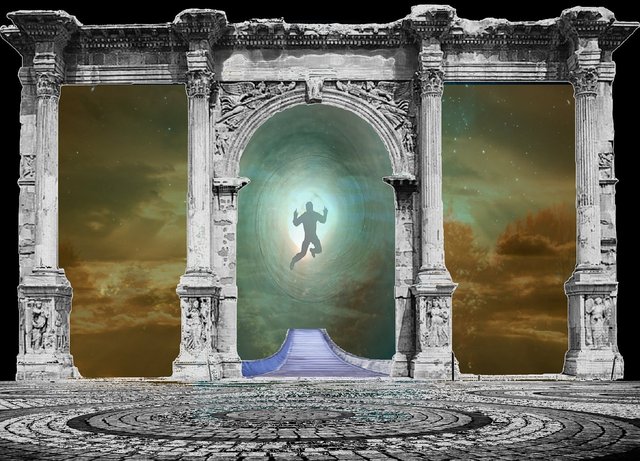
“I intend to live forever or die trying.”
That’s a quote from the comedian Groucho Marx, who probably expected people would laugh at it (as they did for most of his statements). Yet his quote perfectly sums up the quest for immortality, which has consumed many humans throughout the ages. We don’t like the idea of our own death, the inevitable notion that this life will end. And so, from monarchs to explorers to philosophers to futurists to alchemists to scientists to billionaires, the search continues for a fountain of youth.
Many religious and philosophical traditions hold that the soul lives on forever. Some believe the soul is regenerated or reincarnated. And yet, even for people who believe that to be true, human life is limited in time. Our bodies and minds take us only so far.
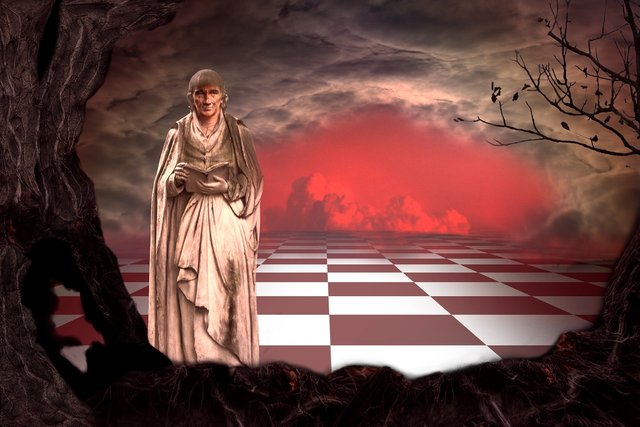
Stand Aside, Grim Reaper
Whether it is drinking elixir or water of immortality, cryogenically freezing ourselves to be woken up in the future, regenerating our body cells, or uploading our minds into a cloud of technology, many people have sought the secret to living forever. The idea can be traced back in some of humankind’s oldest mythology. The search often has taken the form of alchemy more than science. Yet it continues today in the work of scientists, some of whom are funded by wealthy individuals. So I thought it would be fun to go back and recap some of the human history involved with the search for eternal life.
These are mere highlights and are not meant to be exclusive. Yet together, these selections paint an interesting sketch of our quest for immortality. In all cases, as far as we know, that quest has been very human…and very mortal. However, there are figures from past legends (Utnapishtim, Tithonus, Khidr, and Sir Galahad, for example) who supposedly were set to live forever, so maybe they are still out in the world somewhere.
Gilgamesh (c. 2500 BC)
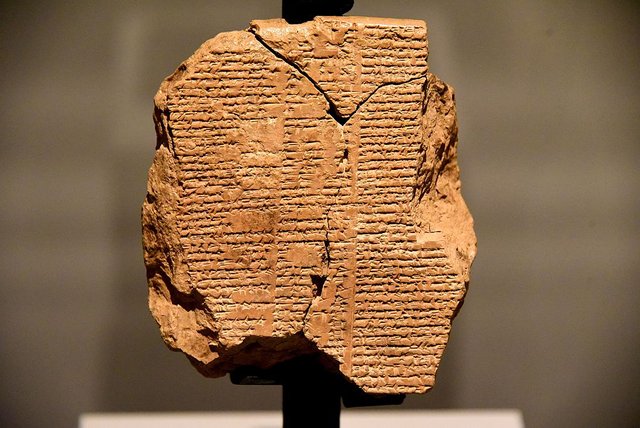
A tablet showing part of the story of Gilgamesh. Creative Commons via Wikipedia.com by Osama Shukir Muhammed Amin.
More than 4,000 years ago, the Sumerians lived in southern Mesopotamia and provided us a record of one of the earth’s first great civilizations. The Epic of Gilgamesh, which was written at that time, told us the story of the king Gilgamesh, who like most kings throughout history was probably a warlord or descendant of one. He ruled as a bully until his friend Enkidu helped him soften his approach.
When Enkidu died, Gilgamesh feared his own mortality and sought eternal life. He found a wise man called Utnapishtim and was directed to a sea plant or coral that grew at the bottom of the ocean. But in the end, his quest ended in failure, and like so many other seekers, his time on earth was limited. To his credit, he was one of the first people on earth to have an epic poem written about his life, so there is a certain immortality in that.
Herodotus (484-435 BC) and Alexander the Great (336-323 BC)
The Greek historian Herodotus wrote about a fountain of youth. He mentioned hearing a claim that there was a group of people who enjoyed great youth and longevity, perhaps in modern day Somalia or Ethiopia. These people in Africa were called the Macrobians; they used a pool of water that Herodotus speculated may have been the source of their longevity. Similar stories were told in the Middle East and made their way into ancient Greece, which may have been how this one came to Herodotus.

Alexander the Great was intrigued by the legend and also was said to have searched for the fountain. This quest is mentioned in the Romance of Alexander, a 3rd Century compilation of the tales of his life. One version of this mentioned that Alexander and a servant crossed the Land of Darkness to find the fountain of youth. Alexander died at 32 years of age, so if he found the fountain, it did not prolong his life too well.
Qin Shi Huang (259-210 BC)
The First Emperor of Qin unified China, creating an empire that stretched from Central Asia to Southeast Asia and east to the ocean. To protect against nomadic tribes, he was the first emperor to call for the construction of a single wall (incorporating some smaller portions which already existed), and his idea was a precursor to the Great Wall of China. He also ordered the creation of the Lingqu canal, which linked two of China’s great rivers and enabled supplies to be sent to the army between south and north China.
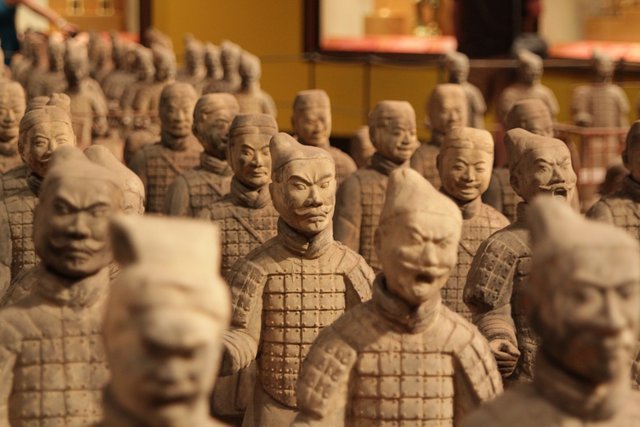
If you’ve ever seen the Terracotta Army of soldiers near Xian, you might wonder if the First Emperor of Qin achieved immortality. Legions of his army soldiers were given a sort of eternal life by recording their individual facial features in the long-living clay statues. But later in his life, Qin Shi Huang became interested in searching for an elixir of life that would extend his own time on earth. He made several attempts to find the legendary Mount Penglai from where the elixir could be found (some say this mountain was on an island that could have been Taiwan, Jeju in Korea, or part of Japan, but the major expedition he sent forth to find it never returned). Some believe that Qin Shi Huang’s death was caused by mercury poisoning; he took mercury pills upon advice from physicians, believing it would help him extend his life.
Khidr (mentioned in the Quran, thought to be written down in 609-632 and also in the Romance of Alexander from the 3rd Century)
In the Quran, Moses met a servant of God called Khidr or Al-Khidr, though there are several other spellings of the name. The term meant green or verdant. He was strongly identified with water and some traditional stories said that he had discovered the river of life or the fountain of youth, perhaps having lived at the time of Abraham. He has appeared in Sufi, Ahmadi, and Zoroastrian traditions and also was mentioned in some non-Islamic sources.
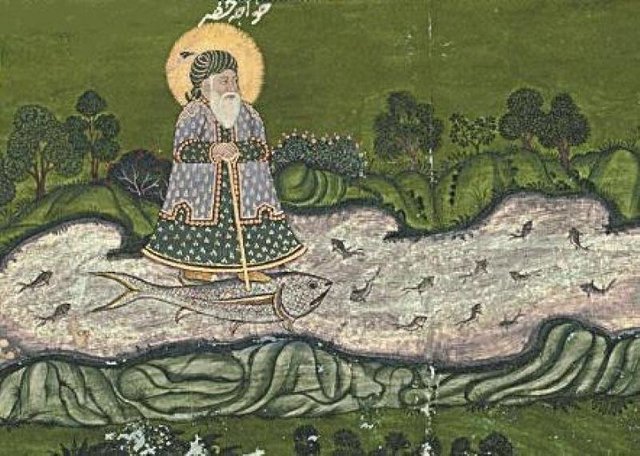
Some experts believe Khidr had a Babylonian connection, while others saw parallels to the stories of Noah or Gilgamesh’s advisor Utnapishtim. Khidr also appeared in one version of the Romance of Alexander (as we know from above, Alexander the Great also searched for the fountain of youth). In the Indus region of India and Pakistan, there are shrines to a revered water spirit called Khawaja Khidr, who according to the Sikandar nama, presided over the well of immortality.
Gods and Goddesses with Eternal Life (Ancient world)
Gods and goddesses have enjoyed immortality in many traditions. Some of these cultures also have included beliefs on how they obtained immortality. The ancient Hindu gods drank Amrit, which was created by churning the sea into froth using a mountain and the king of snakes. The Norse gods and goddesses ate golden apples to maintain their eternal youth. The immortals of Mount Olympus drank Ambrosia. The peach tree guarded by the Monkey King provided immortal fruit to the gods in China. So the idea that immortality was not an automatic privilege, but rather that it was attained by using some special physical drink or fruit, was a widespread concept in many cultures.
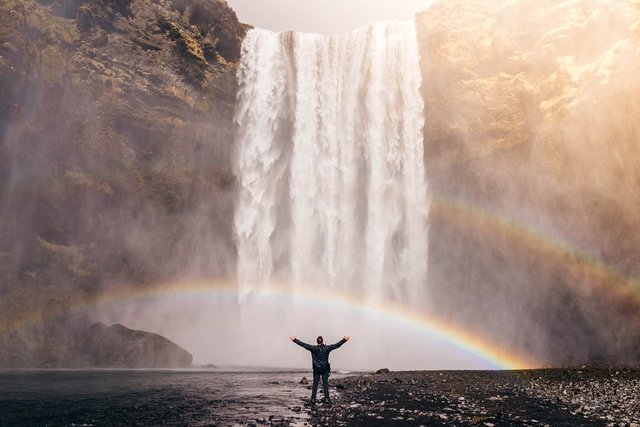
This post became too long. To continue reading, please move to Part II, which is available through this link: https://steemit.com/history/@donkeypong/the-history-of-immortality-searching-for-eternal-life-part-ii-medieval-to-modern-times
All images are public domain from Pixabay or are credited in the text. References for the post are listed at the end of Part II.
Many myths and stories about it, particularly created the version of the Bible, in which Christ is the life and has the power to grant this in an eternal way, although I respect what others believe. Greetings!
Thanks for your informative and interesting post.
Though many people tried to get immortality,but I think it would not good for them. Just think you are reading a book and you know that the book will never end. Is it alright ?
Maybe death gives life meaning.
I think so.
I think I the quest for immortality and time travel goes hand in hand. Over the years ,people have been looking for ways to either keep themselves alive for a longer period of time or by making themselves look younger so as not to die early. These have caused genius mimds to wonder and work but has a solution been found till date? Nope.
Maybe simply coz there is a higher being somewhere who doesn't want us to live forever and his decision is final. Why do we keep trying all in the name of technology.
That's possible, but there's little doubt that the tools exist to extend our lives greatly. Personally, I would worry also whether the world has enough resources to sustain a larger population if this occurs on a broad scale.
This is quite rich, interesting and educative in all ramifications. It is normal for man to seek immortality after achieving almost everything achievable in this life according to Abraham Maslow's hierarchy of needs. However, if any of the recent or perhaps the future quests becomes successful, the world would be in total turmoil with immortality achieved. Death, even though represents hopelessness for some, serves as the light at the end of the tunnel for others.
Great work by the way, I just wish an addendum of further reading is attached to the article.
There are some references listed after Part II.
awesome! I will watch out for it.
I'm interested in ancient mythology, history, architecture since I was 12. You can see that in some of my photos or articles. Therefore your post kept my attention and I enjoyed reading. But my question is: was the last shot taken in Iceland? :)
I'm not sure. Most of these are stock pictures from a public domain site. Some may be real places and the others may include illustrations by artists.
It is quite extensive and complete the information you collected about people and cultures that talk about eternal life.
Beyond being biologically unviable, philosophically we think: Are we really prepared and willing to live eternally?
suppose we do not get sick, that we can not break our bones, life would completely lose its meaning, it would become monotonous and boring.
Imagine seeing a movie that never ends, eating a meal that never ends or a book without end, the joke of all is to come to an end and enjoy the trip.
take each experience and live it, leave the fears and fulfill every idea you can, enjoy the maximum possible because we will inevitably die.
Yes, it's a strange thought. At first, it would seem great to live forever, but would our minds tire of it?
In my opinion after a few centuries of life having explored every sensation, taste and smell until the satiety you would notice the absurdity of life and you would find it totally empty because you did everything you wanted.
Even to see the nature of the human I think it would make you despise them and get away from them because you would see their existence without meaning.
The 12 Trees that bear the sacred fruit of knowledge
that's right, I agree with you
The information is vast and very impressive
I love to know all civilizations and peoples
Thank you for the great article
@donkeypong, It's very interesting to read most valuable contexts indeed blog about History of Immortality. Those days (long years ago) so many persons find immorality through believing reliefs. I heard much time Egypt kings most believe it and had followed. They searched only eternal life. But those days haven't best technology than currently. So someone wasn't born for showing their hide belief. Actually you showing better example's persons who believed immortality.
For me I'm Buddhist. Our religious peoples (oldest) believe those reliefs. Our leader Lord Buddha told can happened reincarnated again. But never said about immortality. I think everything depend on our mind and thoughts. If can control our thoughts, don't want believe immortality and can find better life for Good fortune.
It is very interesting as despite the time some ideas do not change this is one of those, but I think we have misinterpreted the idea of "immortality" because we do not think of being immortal changing the world with our actions? That is to say that when you die you will continue to be remembered for having changed the world in something and in a certain way you would be immortal in the minds of many people and generations!